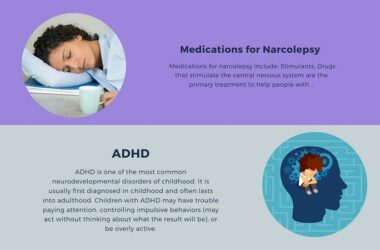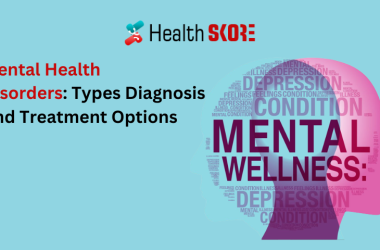What do we understand by Depression?
Depression is a common medical condition that affects your behavior and ability to function. This type of disorder can also produce difficulty with thinking, eating, memory, and sleeping. Depression is a condition that involves a persistent loss of interest and feelings of sadness. It is different from the mood and behavior fluctuations that people experience as a part of their life.
Depression is a persistent health condition, not a passing one. It consists of episodes during which the primary symptoms last for at least two weeks. Depression can last for several months or years.
Sadness and grief are common human emotions that we all experience from time to time. But, they may lead to severe problems if they persist longer and do not go away independently. This might be the start of a severe mental health condition known as “Depression” or major depressive disorder.
It is estimated that about 16.2 million adults in the U.S. or 6.7 percent of the adult population of America, have had at least one depressive episode in a given year. In today’s blog, we will cover most points associated with this alarmingly increasing human disorder. Continue reading to know more about Depression and possible treatments for it.
Depression and mood swings
Loss of a job, death of a loved one, or ending a romantic relationship are difficult experiences for an individual to endure. The development of sad feelings or mood swings in response to such situations is normal, but in case of depression, these feelings can last longer than necessary.
In grief, mood swings or sadness come in waves, often intermixed with good memories of the deceased. In depression, mood and interest are decreased for at most two weeks. In normal mood fluctuation, self-esteem is usually maintained, while in Depression, thoughts of worthlessness and self-loathing are common. In mood swings, thoughts of death may surface when fantasizing about joining the deceased loved one. In Depression, feelings are focused on ending one’s life due to views of the worthlessness of living or being unable to cope with the pain of Depression.
Causes of Depression and how it affects the brain
Many things can trigger Depression, including the following;
Abuse: Sexual, physical, emotional abuse can make you more vulnerable to major depression disorder later in life.
Age: Elderly patients are at higher risk of Depression. That can be made worse by several other factors like living alone or experiencing a lack of support.
Medications: Certain drugs like isotretinoin and antiviral drug interferon-alpha can increase the risk of Depression.
Death or loss: Mood swings after the loss of a loved one, though natural, can increase the risk of Depression.
Conflict: Depression in someone with a biological vulnerability may result from different types of personal disputes with friends or family members.
Gender: Women are about twice as likely as men to experience depression. The hormonal changes that women face from time to time may play an important role.
Significant events: Even good events like starting a new job, getting married, and graduating can be overwhelming and lead to Depression.
Physical effects of Depression that can affect your brain
Brain Size: Professionals believe that several parts of our brain shrink in individuals with Depression. Specifically, these brain areas lose GMV or green matter volume. And GMV loss seems to be higher in patients with chronic or ongoing Depression.
Researchers have found that Depression can also lower GMV in;
Hippocampus: It is an essential part of our brain that helps us in learning and memory. Hippocampus connects to other parts of our brain and is responsible for stress hormones. Depression can affect the work process of the hippocampus.
Prefrontal cortex: This area plays a vital role in your higher-level planning and thinking. Other parts that can be affected may include; thalamus; caudate nucleus; insula.
And, when these areas do not work correctly, you may experience:
- Trouble thinking clearly
- Memory problems
- No motivation
- Guilt or hopelessness
- Anxiety
- Sleep and appetite problems, etc.
How can one identify a person suffering from clinical depression?
One can observe the patient’s physical or psychological symptoms to determine if they are suffering from clinical depression or not. Common depression symptoms can include;
- Fatigue, Restlessness or irritability and crankiness
- Trouble remembering details, concentrating, and making decisions
- Pessimism and hopelessness, suicidal thoughts and suicide attempts
- Feelings of guilt, helplessness, worthlessness
- Aches, headaches, pains, and cramps that won’t go away
- Digestive problems that cannot be treated, etc.
Also, you, as a doctor or caretaker, can ask questions to rule out clinical Depression. For example, when your symptoms started; how long they have lasted; How severe the symptoms are; If there is/has been a history of alcohol or drug abuse, etc.
Typical behavior of a person suffering from Depression
Agitation: Depression can cause turmoil, and the individual can find it difficult to sit or lie still. In addition to extreme agitation, patients may show some behavioral changes like increased anger, frustration, and impulsive behavior.
Hibernation: People with clinical depression may find it challenging to join social events. While joining a social event, they may feel depressed, irritable, and anxious.
Lethargy: People with severe depression may find their motivation drop through the floor. They may behave like someone with a heavyweight on their shoulders and dragging weights around their ankles.
Sleep problems: People with depression can feel sleeping difficulties and find it hard to sleep for a period. They may wake up early in the morning and might not sleep again.
How to battle Depression at work?
You can try the following tips to deal with depression at work. They are not intended as the complete treatment for depression but could help you cope better with work and social situations at work.
Acknowledge depression: First of all, you need to acknowledge your depression at your workplace and understand the reason behind your depression. This may be challenging to you, but it is crucial to managing the situation.
Seek assistance: Clinical depression does not just go away on its own. It is essential to find a professional to get immediate medical help. If your healthcare provider has provided you with a health plan, you should observe it correctly.
Schedule short breaks: It is a good idea to take short breaks while working. This will help you avoid work stress that can trigger your depression.
Following habits can help too in work situations:
- Take a lunch break and get outdoors
- Take a mentally healthy day
- Go for a quick walk
- Do meditations
- Deep breathing exercises
- Watch funny videos.
Helping a depressed friend at work
Let your depressive friend know you are there to help him. You can help him by:
Starting a conversation: You can help your friend by asking him some easy questions and sharing positive views. You can ask your friend, “Is there anything going wrong with you”, or “Can I help you with your work”, etc.
Helping him find support: Suggest your friend ideas that can help him and find support on time. You can help your friend in finding a good support group.
Encouraging them to take therapy: Depression can ruin your friend’s ambition and cut him from social events. They may hesitate even in approaching a doctor or therapist. In this situation, you can help him reach a therapist and take appropriate treatment.
Identifying and helping employees suffering from depression
As a manager or team leader, you can use the certain habits or behavioral changes to help your employees suffering from anxiety. They can be:
- Model healthy behaviors
- Build a friendly culture through check-in
- Offer flexibility and be inclusive
- Communicate more than you think necessary
- Invest in training, etc.
Creating a safe space to talk about Depression
It is always crucial to be there at times of need for your employees. You should make your entire office a safe space to talk about depression. And, in order to do so, you will need to spread positivity in the office atmosphere, treat both normal and depressed employees equally. You can share positive thoughts and examples of people who progressed well at work, even with a mental disorder.



